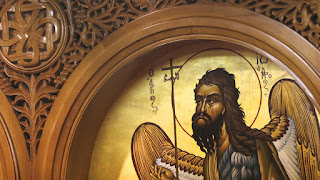Conversion Therapy, LGBT, Paraguay, Unification Church, Bulgarian Orthodox Church
"He remembers walking towards the worst experience of his life. The dorm hall was a concrete tunnel, with chipped white paint on the walls and a stench of sweat trapped inside. The stairs, he recalls, squeaked underfoot. They led to a wooden door, which Andrew Pledger pried open.
He stepped inside, sunk into a peeling black couch and locked eyes with the man sitting across the desk.
And then something happened.
"Everything around me just faded away," Pledger says. He floated out of his body. "I almost couldn't hear him anymore … time just completely slowed down."
The next thing he remembers is leaving the office, a pounding pain in his chest. An hour had passed. Whatever happened in that room had shaken Pledger, then a tormented, depressed student at a private evangelical university in South Carolina. A voice filled his head, telling him: "You cannot do this. This is unhealthy. This is not good."
Pledger had just experienced conversion therapy – the discredited, pseudoscientific practice that purports to help a gay person change or resist their sexuality. The practice doesn't work: Virtually every major medical association denounces it as junk science. A flood of studies has warned of its dangers; young people who experience conversion therapy are more likely to suffer depression and attempt suicide, researchers have found.
But conversion therapy is still practiced in nearly every state, monitoring groups say. Efforts by right-wing lawmakers to repeal city and state-wide bans have claimed their first successes. And former leaders of the "ex-gay" religious movement told CNN the practice is enjoying a resurgence — this time in more cloaked, subtle, secretive forms.
Pledger wasn't sure that he wanted to change his sexuality, but he needed something to change. In the months before he sat on that dusty couch, he had been relentlessly bullied, he had harmed himself, and on one dark evening in his dormitory, he'd held a bottle of medication in his hand and considered ending his life. He remembers it all.
And yet the meeting itself is lost to the deepest recesses of Pledger's mind. "I just disassociated," he says. His response is not uncommon — multiple conversion therapy survivors told CNN they had blocked out the details of the practice. It might as well never have happened.
Except that there is one more thing that Pledger remembers: fumbling into his pocket in the moments before the session began, pulling out his phone, and hitting "Record."
Pledger said he was told in a conversion therapy session on the BJU campus: 'We're going to deal with this sin like we would deal with any other sin.'"
"How a controversial religious group from South Korea gained ownership of a remote village in Paraguay.Puerto Casado is a remote village in Paraguay, in South America. It's not dissimilar to many other rural towns in the area: red-brick houses, small grocery stores and unpaved roads. But what makes Puerto Casado an exception is that it's at the centre of a land dispute between the Paraguayan state, local residents and the Unification Church, a controversial religious group from South Korea."
"The Holy Synod of the Bulgarian Orthodox Church has issued a strongly worded statement warning Bulgarian citizens against what it calls "pagan neo-Hindu propaganda with false Christian elements" being spread by touring gurus and self-proclaimed spiritual teachers.
In the statement published yesterday, the Church leadership expresses concern about religious groups that "interweave their pagan beliefs with incorrectly used elements from Christianity" with the goal of leading "as many people as possible into spiritual delusion" to increase their followers.
The Synod specifically names several prominent figures including Bhaktivedanta Swami Prabhupada, Maharishi Mahesh Yogi, Sri Chinmoy, Sri Mataji Nirmala Devi, Osho Rajneesh, Sai Baba, Shibendu Lahiri, and Sri Sri Ravi Shankar among the "neo-Hindu spiritual leaders" whose initiatives are being promoted in Bulgaria and abroad."
News, Education, Intervention, Recovery


